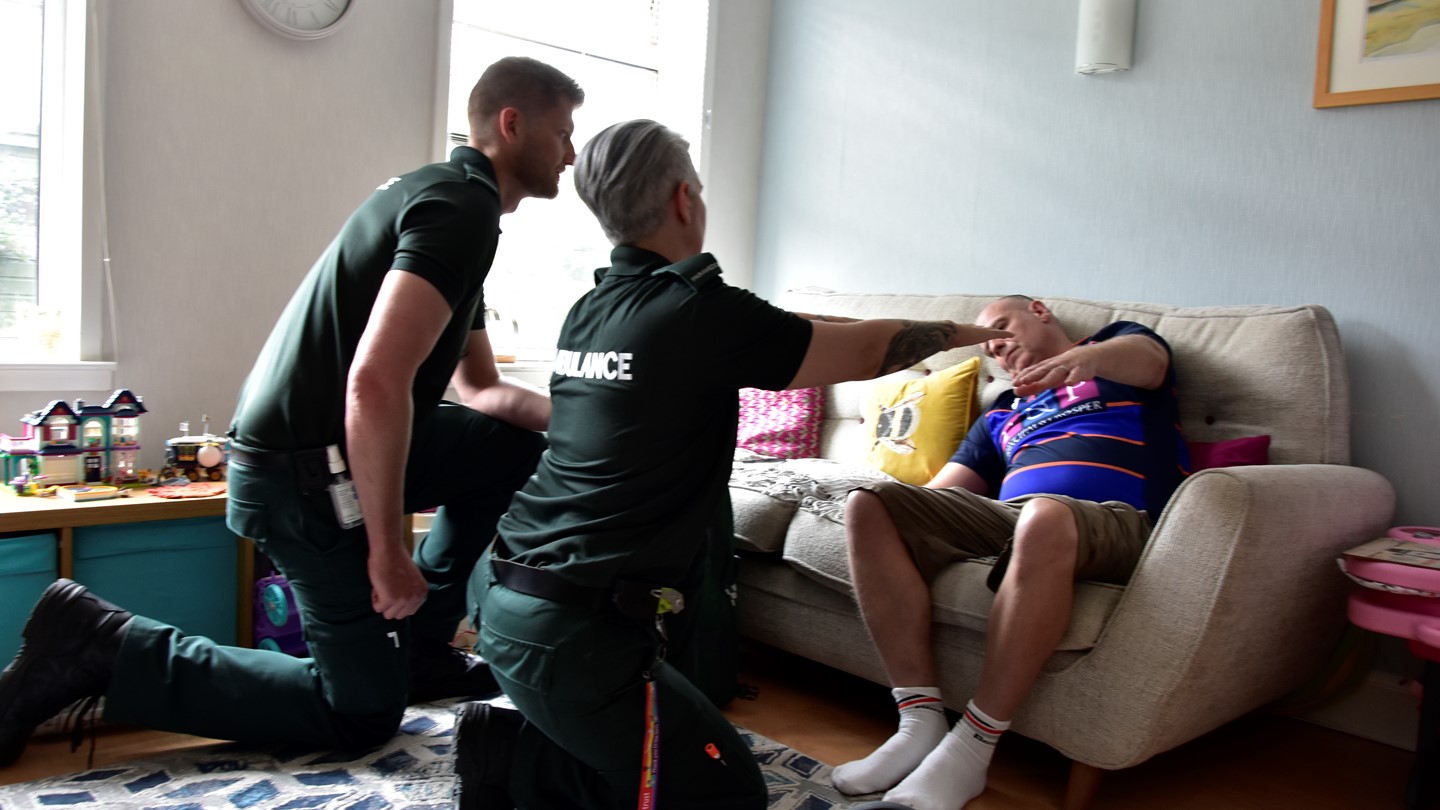How we respond to a Stroke

About Stroke
Stroke is the third most common cause of death and life altering, complex disability in the United Kingdom. Stroke can occur at any age and it is vitally important that you receive treatment as soon as possible following the stroke occurring.
While there are many types of stroke that someone can suffer from, you must have a CT scan in hospital to determine what type of stroke has occurred to allow for the most appropriate treatment to be given.
If you suspect you are having a stroke or someone else may be, phone 999 immediately and ask for an ambulance.
What happens when I phone 999 for a stroke?
When you phone 999 and ask for an ambulance, the call-taker will ask a series of questions to ensure we can stay in touch with you, we know where to send the ambulance and to allow us to understand what the problem is.
If you suspect yourself or someone else is suffering from stroke, the call-taker will again ask a range of questions to try to best understand the condition of the patient. For stroke patients, the call-taker will also ask that a ‘FAST’ test is carried out and will talk you through how to do a FAST test.
When the ambulance arrives, the Ambulance Crew will carry out a range of essential clinical observations and ask several questions to allow them to better understand what has happened.
For stroke patients, the crew will also carry out a FAST test just like the one the call-taker asked to be carried out. This does not delay transfer time to the hospital as it is important that FAST is reassessed by the Ambulance Crew.
For stroke patients, following the Ambulance Crew carrying out their clinical observations and the FAST test, they will decide on the best treatment and will transport the patient to the most appropriate hospital which, in some cases, may not be the nearest one to the patient.